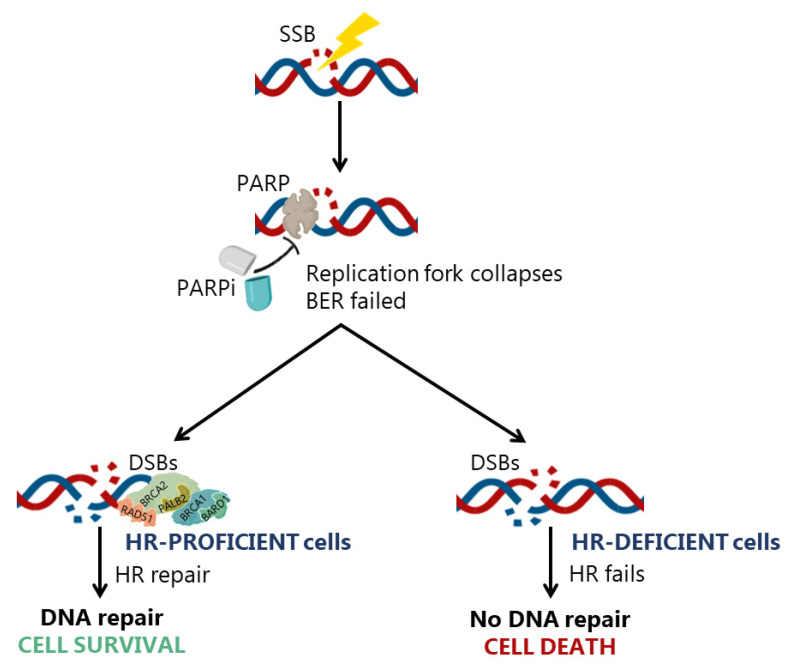Figure 5.
Underlying mechanism of synthetic lethality by poly(ADP)-ribose polymerase (PARP) inhibitors (PARPi). PARP enzyme is crucial in single-strand breaks (SSBs) repair. The pharmacological inhibition of PARP enzyme will assure that DNA lesions as SSBs will not be repaired by base excision repair (BER) mechanism and the damage will probably progress to double-strand breaks (DSBs). Homologous recombination (HR) is an important mechanism of DSBs repair. Therefore, the suppression of PARP enzyme through PARPi will produce distinct DNA repair responses by cells depending on their HR proficiency status. In HR-proficient cells, despite the failure of BER to repair SSBs, HR is able to repair the DSBs, contributing to the maintenance of genomic integrity and cell survival. Conversely, in HR-deficient cells, there are no reliable DNA repair mechanisms to repair the DNA damage, which leads to genomic instability and cell death.

